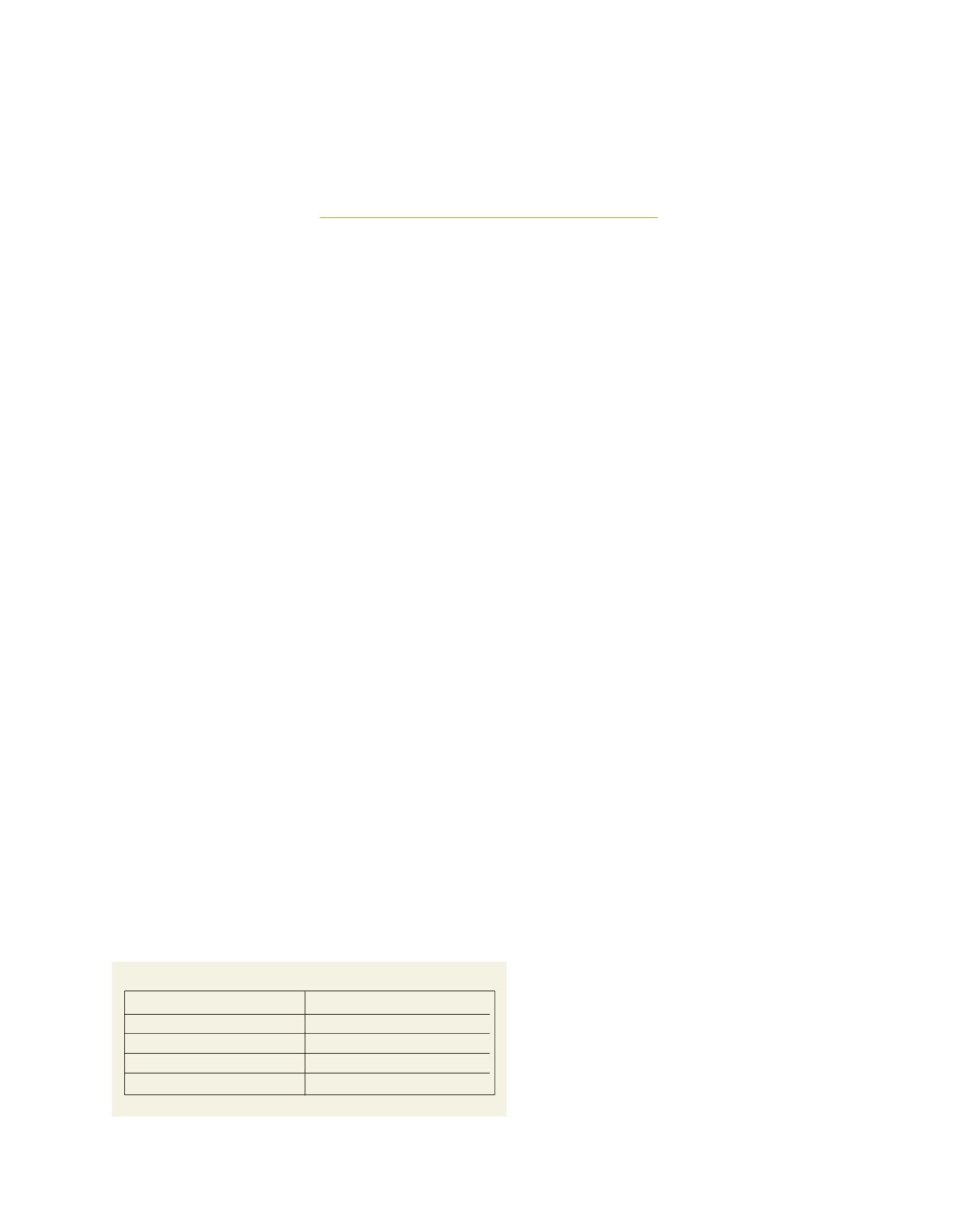

[
] 158
Sustainable plantation management
through certification
Canecio Munoz, Sinar Mas Forestry, Indonesia
S
inar Mas Forestry (SMF) is the sole fibre supplier
to Asia Pulp Paper (APP) in Indonesia. It manages
plantation resources with a gross area of 2.5 million
hectares (ha), and a net operational area of 1.5 million ha in
Sumatra and Kalimantan islands of Indonesia. SMF directly
employs over 9,000 people and develops plantations in both
greenfield sites (barren lands) and degraded forest locations
within Indonesia.
As a supplier to APP, SMF must demonstrate compliance with APP’s
environmental sourcing policy that requires “purchasing wood fibre
for pulp-making operations from sustainably managed forestry
sources, which conserve areas of outstanding habitat and operate in
harmony with local communities.”
Recognizing the need to clearly demonstrate compliance to this
policy, SMF required a credible sustainable plantation certification
standard (audited by a third party) to be implemented within all
SMF-licensed companies.
The SMF forest certification programme started in 2007 using
both the obligatory standard for sustainable forest management, and
the voluntary Indonesian and international certification schemes. Of
the different schemes tested, SMF and partner-forest management
units (FMUs) decided to pursue a forest certification programme
applying the requisite and non-compulsory Lembaga Ekolabel
Indonesia (LEI) standards. The international scheme tested was
found not practicable for application in the country’s commercial
plantation forest development.
1
SMF decided to demonstrate its compliance with APP’s fibre
procurement policy through the gradual application of the Lembaga
Ekolabel Indonesia (LEI) Sustainable Plantation Forest Management
Certification System 5000-2 (SPFM 5000-2) standard, to encompass
all licensed companies in addition to the compulsory requirement.
A total of 1.4 million ha or 56 per cent of the gross area managed by
SMF have been certified under this compulsory scheme.
The LEI certification standard
LEI first developed its natural forest certification
standard from the framework of the International
Tropical Timber Organization (ITTO) Sustainable
Management of Natural Tropical Forest guidelines.
These guidelines were recognized as building blocks
for development of a national set of criteria and
indicators
2
to be adopted at the formation of LEI
in 1998.
In 2000 the natural forest certification standard was
developed into SPFM 5000-2. This was designed for
compliance with all social, environmental and labour
regulations of Indonesia.
As at 1 October 2011, LEI had a total certified area
of forest in Indonesia of over 1 million ha, as shown in
the illustration below.
The SPFM 5000-2 standard also gives assurance
that the entity under assessment is operating to,
and in compliance with, local and national natural
resource management regulations and that the entity
is economically viable and supporting environmental,
social and economic aspects of regulations relevant to
plantation development.
LEI is currently engaged with FSC in the nascent
stages of a harmonization assessment within a memo-
randum of understanding.
Goal of certification
The strategic goal for SMF is to have 2.3 million ha
or 90 per cent of the concession area certified under
SPFM 5000-2 standard by 2015. This area is expected
to change, contingent upon acquisitions or disposals of
companies into and out of the group.
As at February 2011, a number of SMF entities had
passed the benchmark for demonstrating sustainable
plantation management under the SPFM 5000-2 stand-
ard. These include:
• PT. Wira Karya Sakti Tanjung Jabung, Jambi
260,829 ha
• PT. Finnantara Intiga Sanggau, Kalimantan Barat
126,806 ha
• PT. Surya Hutani Jaya Kutai, Kalimantan Timur
157,070 ha
This represents 22 per cent of the gross area of 2.5
million ha of SMF managed companies.
Sustainable certification type
Natural forest
Community forest
Plantation forest
Total
Hectares
502,649
25,170
544,705
1,072, 524
Area certified under LEI standards in Indonesia
Source: LEI (2011)
















